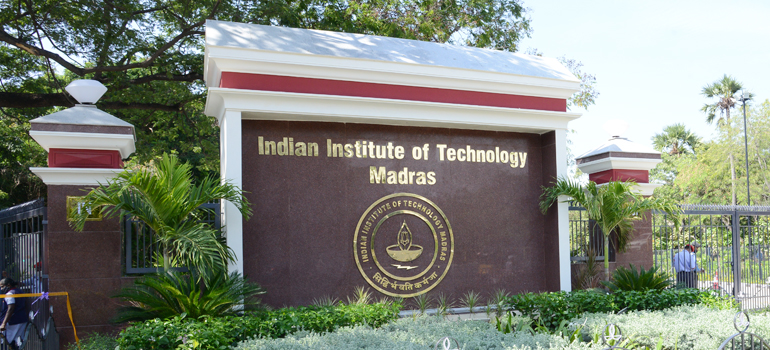
Chennai: With electric vehicles (EVs) touted to be the future mode of transportation, researchers attached with the prestigious Indian Institute of Technology Madras (IIT-M) have developed a universal battery charger for such vehicles with a controller programming that can be changed to be used in different countries based on the input power supply availability.
This charger provides a wide range of voltage ranging from 120-900 V from a universal input power supply which facilitates charging possibility for all EVs from a single charging unit – potentially eradicating different, dedicated chargers for various types of vehicles like two-wheelers, three-wheelers, and four-wheelers.
Besides, the charger can be used as a portable unit, essentially like an emergency kit, in case of a vehicle breakdown or deep discharge of the battery pack.
The research, led by Dr Deepak Ronanki, Assistant Professor, Department of Engineering Design, IIT-M, and published in peer-reviewed journal IEEE Transactions on Power Electronics, is all the more significant since one of the major limitations of wide adoption of EVs is the lack of charging infrastructure that can seamlessly and quickly recharge the batteries.
Ronanki said there has always been an urge to develop a charging infrastructure that can mimic the functionality of fossil fuel stations and the new charger can modify the available input power supply according to the EV requirement and deliver an output voltage based on the battery pack voltages.
“We thought of one charger that could charge every type of vehicle and we were successful in developing one. When you have a universal charger, it will be like a petrol pump where you can refill every type of vehicle without any hassle”, Ronanki told
The researchers, whose work was supported by Science and Engineering Research Board (SERB) and Department of Science and Technology (DST), Government of India, under a start-up research grant (SRG), have designed a prototype of the charger which was tested in laboratory environment.
“So far, no single charging unit can produce a wide output voltage range from 120 V to 900 V with a universal input power supply globally. Our charger can provide these features in addition to reconfigurability and modularity for adoption as onboard chargers and off board chargers”, the lead researcher told
They are currently developing a product along with the communication protocols with various EVSEs to test this charger in the real environment for commercialization and plan to commercialize this charger as an onboard charging unit to reduce the production cost of the chargers as well as an offboard charger unit to provide one charging unit to charge all the EVs.
“The researchers are currently in talks with multiple industry players to commercialize the product. We will be finalising a company very soon and the commercial production could happen in about a year’s time”, Ronanki added.
About the technical advantages of the charger, Harish Karneddi, research scholar, IIT-M, said the charger operates with approximately the same efficiency throughout the charging process for a desired battery voltage and wide output voltage range (120 to 900 V), which is a unique feature that is not found in any of the available battery chargers.
“In addition, it maintains greater efficiency than a conventional battery charger at all operating points. We are currently working on improving the charger efficiency in this voltage operating region so that the same charger can be used for e-bikes, e-bicycles, and small cars. Once it is done, it can charge all types of vehicles starting from two-wheelers to heavy-duty vehicles”, he said.
The battery charger developed by IIT Madras is a two-stage charger involving a front-end boost-buck “Power Factor Correction” (PFC) circuit followed by a reconfigurable DC-DC converter. The boost-buck PFC converter converts AC to DC and maintains the desired DC voltage at the DC link along with the unity power factor at the input source terminals.
The boost-buck PFC converter boosts the voltage when the battery voltage of the vehicle is greater than the input voltage and reduces the voltage when the battery voltage is less than the input voltage. The reconfigurable isolated DC-DC converter provides safe operation of charging.
Original News Link
https://www.deccanherald.com/technology/iit-madras-develops-universal-battery-charger-for-electric-vehicles-3062340